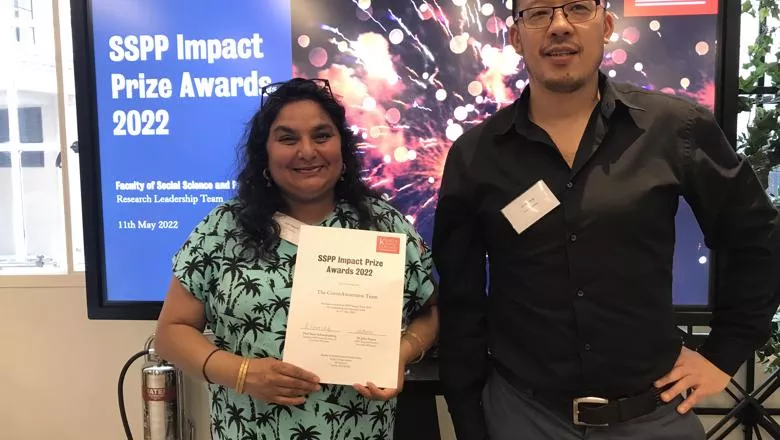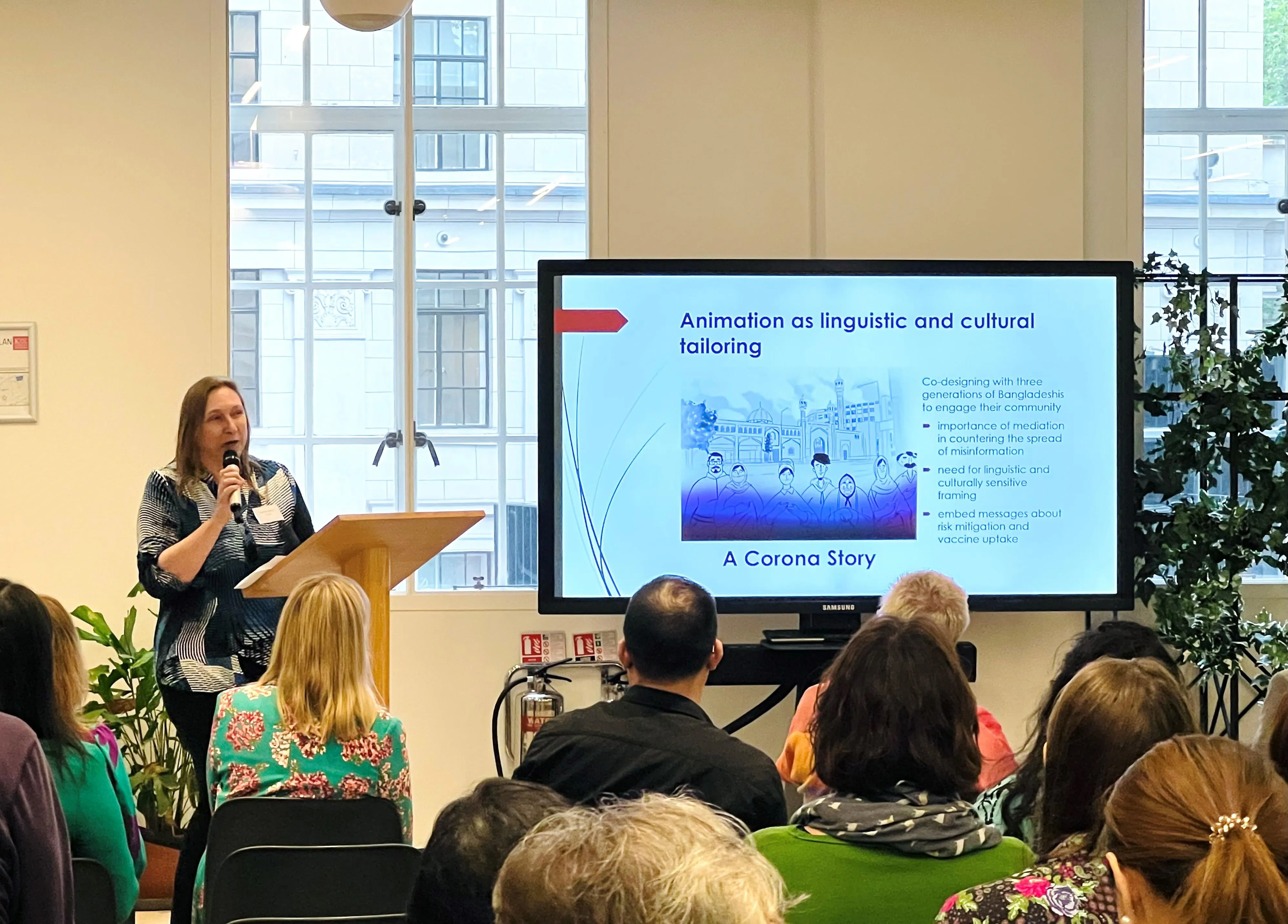"As we talked to both older and younger generations of UK Bangladeshis for this research, we were able to uncover stark differences in people’s ability to grasp difficult and scary concepts based on their languages, but also the importance of the support networks, those who act as linguistic and cultural mediators. We have continued to work with public health bodies to create more oral resources available to the various ethnic minorities, so it’s rewarding to see our work recognised through the SSPP Impact Awards."
Chris Tang, Principal Investigator and Lecturer in International Education & Applied Linguistics
12 May 2022
Project preventing COVID-related illness among ethnic minorities receives SSPP impact award
Researchers at the School of Education, Communication & Society have been awarded an SSPP Impact Prize Award 2022 for their work with minority communities with a strong oral language tradition in countering the spread of misinformation about COVID.

Throughout the pandemic, Dr Chris Tang and Prof Gabriella Rundblad have been working in partnership with local doctors and community liaisons to provide a linguistic and culturally sensitive framing for embedded messages about risk mitigation and vaccine uptake to the Sylheti, Pahari and Pashto communities in the UK. Thanks to their inclusive, bottom-up approach, drawing upon the voices of people typically labelled “hard to reach”, they were able to meet a gap in orally accessible advice and helped prevent COVID-related illness among groups who were underserved and more vulnerable.
In recognition of their achievements to date, and to allow them to continue and expand their activities, the team were awarded £2,000 as part of the SSPP Impact Prize awards 2022.

Already the team has co-created a community- and data-driven film to engage UK Bangladeshis with their findings, as well as a series of videos in Sylheti, Pahari and Pashto to increase awareness of social distancing measures and trust in public health messages, including those about the efficacy and safety of the vaccine. These have received substantial engagement on social media and were broadcast on JKTV, a TV station for Pahari speakers with a weekly viewership of 1.2 million, and on Channel S (the most viewed Bengali channel in Europe).
The study and videos have contributed to the remarkable turnaround in vaccine uptake in these communities: for instance, Bangladeshis are now the most vaccinated ethnic group in London. In contrast, they were disproportionately affected by COVID-19 related morbidity and mortality in the early months of the pandemic, due in part to the lack of accessible messaging and information.
The researchers identified that the older members of the Bangladeshi community primarily speak Sylheti, which is an oral language, uncodified and rarely written, in which risk is expressed radically differently from the ways in which the written English public messages were communicating COVID-related risks. For instance, participants understood COVID-19 through embodied conceptualisations, such as comparing it to a wind, and thinking of transmission as touching people’s breath.
The lack of orally accessible sources of official information left many in the Sylheti, Pahari and Pashto communities reliant on the interpretations of advice by carers and family members, who were facing the challenge of reframing abstract concepts such as “r-number” and “support bubble” in an oral language.
The research project and two related impact projects are contributing to a recognition of the need to make oral resources available to minority ethnic and minority linguistic groups as a form of community empowerment, which is crucial for any future public health or other crises.
In this story
Related departments
- Faculty of Social Science & Public Policy
- School of Education, Communication & Society
- Centre for Language, Discourse & Communication (LDC)
- CORONAWARENESS - Preventing COVID-related illness when social distancing measures are relaxed and tightened in ethnic minority communities with a strong oral tradition
- Social learning about COVID-19 vulnerability and social distancing in high density populations: the case of UK urban dwelling Bangladeshis

